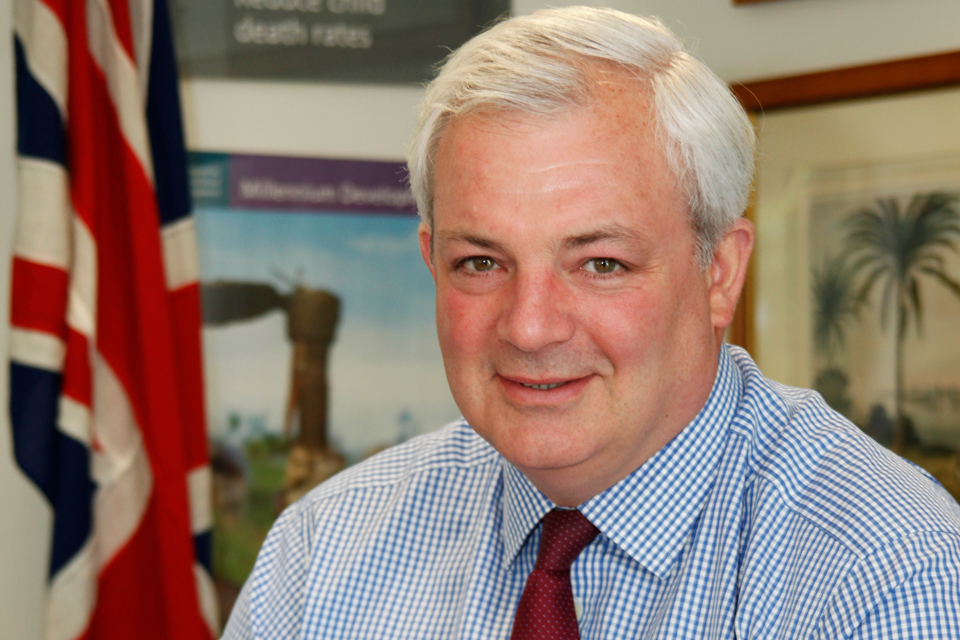WWF 50th Anniversary: Viva Amazonia
COPY PENDING

Ladies and gentleman. Your Excellencies. Fellow colleagues [from the House of Commons and Lords].
It is a pleasure to be with you this evening and learn about WWF’s work. As my colleague [the Right Honourable] Malcolm Bruce [is aware] [has mentioned], the Department for International Development is a “WWF supporter”, one of the many across the world.
So it’s been a wonderful opportunity to hear from David Nussbaum, Denise Hamu from Brazil and Jo Fox about what Brazil has been doing to promote the sustainable management of forests in partnership with WWF, Sky and other partners, like HSBC.
This has given us a taste - with a Brazilian Amazon flavour - of what can be done in reality on the ground to protect and manage forests for the benefit of poor people.
It seems that success needs us to take two approaches.
The first focuses on the underlying causes that drive illegal logging and illegal conversion of forests to other uses - with “legality” based on the sovereignty of each forest nation.
The second, is to strengthen the positive and direct market incentives for people who depend upon and manage natural resources so they can improve their lives.
Brazil is in the vanguard on both.
On the first, tackling the underlying causes of illegal logging and deforestation.
Brazil has assigned clear responsibilities amongst different agencies and levels of government -Federal, State, Municipal - for forests, for enforcement of forest laws and for monitoring their compliance, including, as we have heard, in the State of Acre.
Acre’s “System for Incentives for Environmental Services” - the SISA law - came into force last October. It lays out clearly what new institutions will be required for regulating, rewarding and monitoring enterprises that sustainably manage forests -with the water, carbon and biodiversity services that forests provide.
However, to implement this system effective institutions will be key. This means insitutions with technical capacity, but also which involve private sector and forest-dependent people in some way.
And for a system of incentives like this to benefit poor people, clarity on who has exclusive rights over which natural resources will also be important.
People that depend on forests for rubber or asai fruit or fish often find their livelihoods are at risk because production of commodities like soya bean, palm oil and beef drive deforestation.
However, Brazil has taken great strides in tackling this problem and is rolling out its forest monitoring and transparency system, which in turn should ensure that poor people living in and around forests are not deprived of their livelihoods.
I am happy that DFID’s support to WWF has contributed to work in this area.
On the second approach, bringing people to markets and markets to people.
This can be tricky for poor people living in remote forest areas far from market centres.
But by helping rubber tree tappers improve their practices and make better quality sheets suitable for local shoe sole manufacturing, the WWF partnership has helped Amazonian peoples regenerate their livelihoods.
Markets are changing - locally and globally. Buyers markets in particular. Consumers in Europe and elsewhere wish to know that the products they purchase comply with sound business practice and are from sustainable and legal sources.
The new European Illegal Timber Regulation that recently came into force in December is a case in point. It makes first sale in the EU of timber that has been illegally harvested elsewhere, an offence. This will give consumers confidence that the tropical wood they buy is not from dodgy sources.
Making life better for the poor people who live in and around forests - 1.2 billion of them - is about more than development policy. It is also about trade and market incentives whether for rubber, timber or carbon.
So - congratulations to WWF, its partners and supporters in UK.
It has been a wonderful evening of lessons from the Amazon - a ”Brazilian cocktail” of experience.